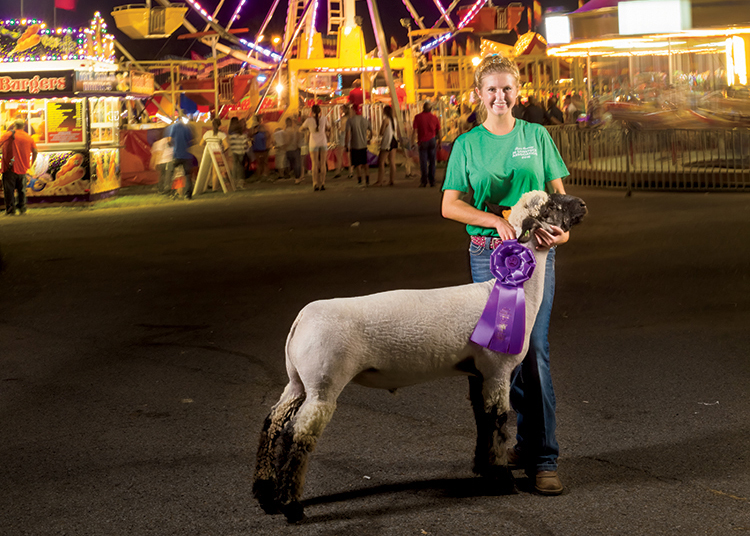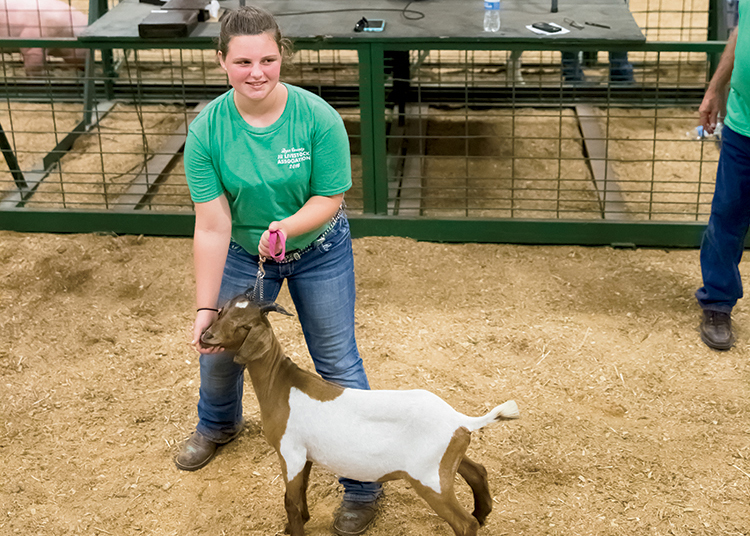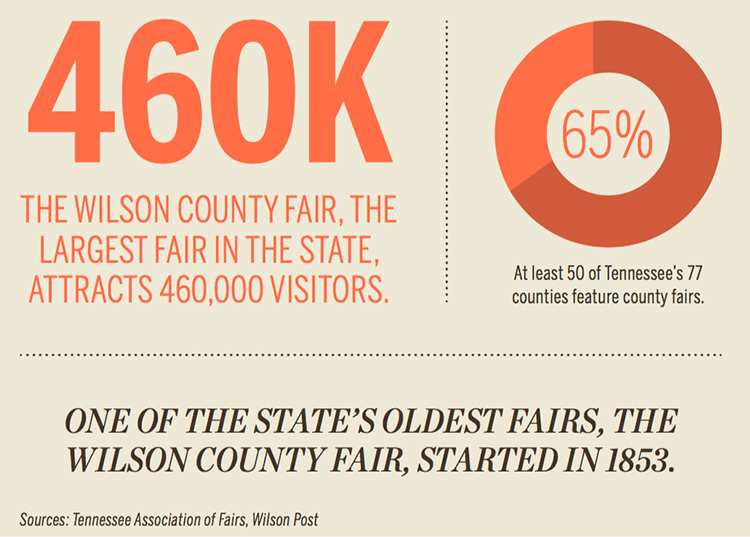Home > Tennessee > Tennessee Farm to Table > How Tennessee County Fairs Keep Agriculture in Focus
How Tennessee County Fairs Keep Agriculture in Focus
In partnership with: Tennessee Department of Agriculture

County fairs are an important part of many Tennessee communities, often drawing thousands of residents who mark their calendars in anticipation of the events each year.
In Tennessee, fairs are a partof the state’s agricultural history. The Tennessee Department of Agriculture (TDA), formed in 1854, was the first state department of agriculture to promote country agricultural fairs. Today, approximately 3 million people visit Tennessee agricultural fairs each year. TDA proudly continues to support more than 60 fairs held throughout the state, with money offered for merit awards and premiums for livestock shows and agricultural events.
Although these fairs typically feature the usual attractions like rides, concerts and pageants, they always put one focus front and center: agriculture. In 2016, there were more than 120,000 agricultural entries in Tennessee fairs by an estimated 28,000 exhibitors. Meanwhile, that same year, Tennessee fairs paid approximately $1 million in agricultural premiums to exhibitors of livestock, crops and agricultural products.
Through livestock shows, rodeos, horticultural events and much more, Tennessee county fairs promote and celebrate one of the state’s top industries – all while providing plenty of family-friendly fun.

Rural Tennessee County Fairs
The Hardin County Fair, held at the Hardin County Fairgrounds in Savannah each September, attracts more than 21,000 annual visitors. The fair features 4-H Chick Chain events, a swine show, beef cattle show, goat show, sheep show, and a horse and mule show, as well as arena competitions in log splitting and tractor pulling.
The six-day fair also includes a Thursday night rodeo, which is one of the most-attended events. In addition, the Hardin County Fair has an exhibit building where attendees can purchase handmade items, and it hosts a beauty pageant and demolition derby. There’s a carnival with rides and games, too, plus plenty of food vendors.
According to Sheila Bomar, who handles the fair’s public relations, attendees are only required topay one affordable rate in order to access most of the fun.
“The Hardin County Fair is pay-one-price – $10 covers rides and all the arena events,” Bomar says. “Once people are in, all they have to pay for are food and games, and that’s really helped our attendance grow; we have increased our attendance each year for the past four years. It’s very affordable for families of all sizes to attend.”
Also in West Tennessee, the six- day Dyer County Fair takes place in Dyersburg and opens on Labor Day. Drawing nearly 98,000 people each year, the fair’s ag-related events include daily livestock shows, a market animal sale, tractor-driving contest with an obstacle course, crop and horticulture exhibits, a soybean cook-off, and a sorghum recipe contest.
“We work very hard to make this an event for the community where they can learn about agriculture,” says Sandy Baker, the 2016 Dyer County Fair president. “Our fair revolves around agriculture because it’s the prime industry here in Dyer County.”
Additionally, attendees can enjoy family-friendly live entertainment, go-kart racing, beauty pageants, a carnival with amusement rides and much more.

Notable County Fairs
The Wilson County Fair –the most attended fair in the state – is a nine-day event held at the James E. Ward Agricultural Center in Lebanon in August. According to Randall Clemons, treasurer of the Wilson County Fair, “every livestock show that’s possible takes place,” and there are dozens of farming and horticulture exhibits for attendees to explore.Drawing more than 460,000 people, the Wilson County Fair also includes the Fiddlers Grove Historical Village, which Clemons says is a nod to “old-time agriculture.” The village includes more than 50 historical structures, a water-powered gristmill and a petting barn with small animals.
“Our fair is a very agricultural fair, and we have tried to keep agriculture as its base over the years,” Clemons says. “Agriculture remains the most prominent aspect of the fair, but we also have six stages of live entertainment going each night, and there’s an open arena with motocross events.”
Other notable fairs in the state include the nine-day Williamson County Fair held each August. With livestock shows, agricultural exhibits, concerts and more, the Williamson County Fair focuses on its growing population of young families and has tailored the fair to attract that demographic.
East Tennessee county fairs are considered some of the best in the state for their dedication to agriculture education, activities and entertainment value. Examples include the 10-day Tennessee Valley Fair in Knoxville that features an AgVenture Scavenger Hunt designed for children, and the Meigs County Fair, which has a popular baking contest that awards ribbons to the bakers of the tastiest cakes, cookies, pies and breads.
For more information on the state’s county fairs, visit tn.gov/agriculture/topic/ag-farms-agricultural-fairs.



